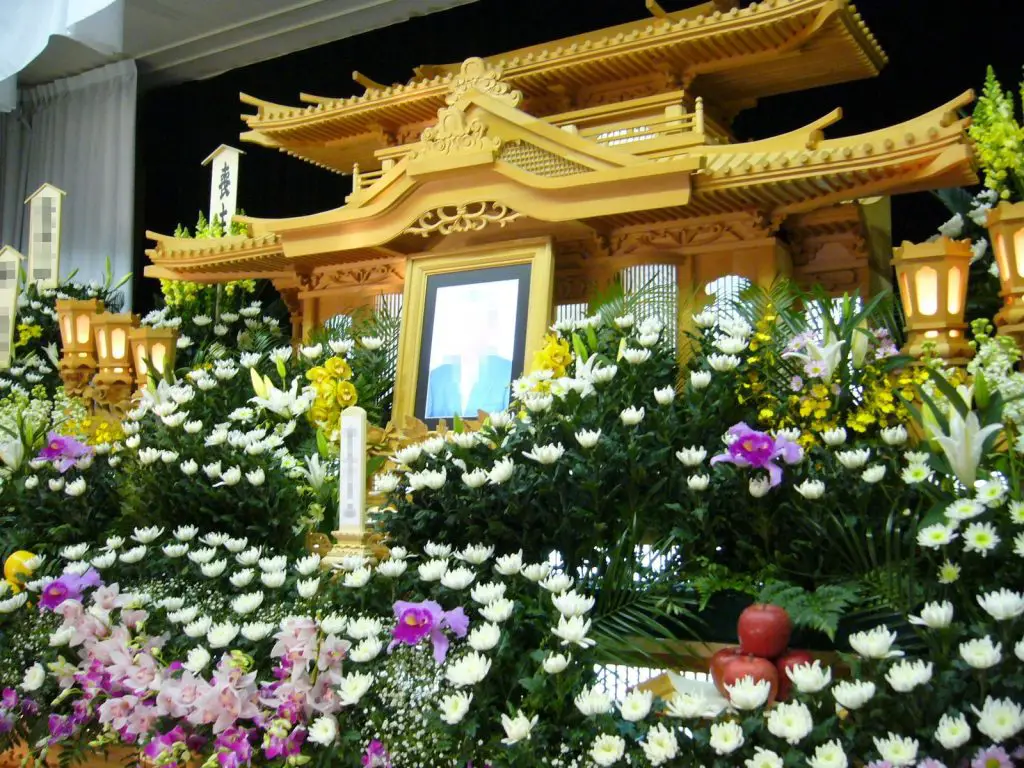1. Introduction
Death is a part of life and the Japanese have many traditions and customs to honor their departed loved ones. The funeral process in Japan is steeped in centuries of tradition, with many rituals and ceremonies that are still practiced today. This article will explore the different ways that the Japanese honor their dead, from traditional funeral ceremonies to posthumous names and death anniversaries.
2. History of Japanese Funeral Practices
Funerals have been an important part of Japanese culture for centuries, with traditional practices dating back to the 6th century. These practices have evolved over time, but many of them remain unchanged today. In ancient times, funerals were often held on mountaintops or in remote locations away from towns and villages. This was done to protect the living from any evil spirits or bad luck associated with death. Funerals were also used as a way to show respect for the deceased and provide closure for their family members.

3. Traditional Funeral Ceremony
The traditional Japanese funeral ceremony consists of several steps that are designed to pay respect to the deceased and help them move on to the afterlife. The first step is a wake or vigil, where family members gather around the body of the deceased and say prayers for them. The second step is a procession from the home or place where the body was kept to the cemetery or crematorium where it will be buried or cremated. During this procession, family members may wear white mourning clothes as a sign of respect for their loved one who has died.
4. Memorial Services and Buddhist Rites
Memorial services are also an important part of honoring the dead in Japan, usually taking place at a Buddhist temple or shrine after burial or cremation has taken place. During these services, family members may offer incense and flowers in memory of their loved one who has passed away as well as recite sutras (Buddhist scriptures). Afterward, they may also visit gravesites or tombs where they can pay further respects to their departed relatives by placing flowers and offering prayers.
5. Mourning Customs and Practices
In addition to memorial services, there are many other mourning customs that are practiced in Japan such as wearing black clothing for up to six months after a death occurs as well as avoiding certain activities such as going out at night or eating certain foods during this period of mourning.Other customs include sending condolence money known as “koden” which helps cover funeral costs; refraining from attending parties; abstaining from engaging in cheerful activities; abstaining from celebrating birthdays for up to one year; visiting gravesites regularly; giving donations; offering incense at temples; setting up memorial tablets at home; burning paper money at gravesites; writing letters expressing sorrow; making offerings at temples on special days such as New Year’s Day ;and more.
6 Grave Sites and Tombstones in Japan
In Japan,most people are buried in cemeteries instead of being cremated.At these cemeteries,families usually purchase plots which are marked by tombstones.These tombstones typically bear inscriptions expressing love,admiration,respect,gratitude,etc., towards those who have passed away.There may also be carvings depicting symbols related to Buddhism such as lotus flowers,dragons,phoenixes,etc., which all serve to honor those who have died.In addition,some families choose to set up memorial tablets inside their homes which serve both practical purposes (such as providing directions should visitors come calling) but also spiritual ones (as these tablets act like shrines where offerings can be made ).
7 Posthumous Names & Death Anniversaries
Posthumous names are given by families after someone passes away.These names typically reflect qualities about that person that were admired during life such as bravery,wisdom,strength,etc., while also serving as a way for others to remember them after they have gone.Death anniversaries are another way that families remember those who have passed away ; these anniversaries often involve visiting grave sites again along with offering prayers & incense while wearing white mourning clothes once more.
8 Conclusion
The Japanese take death very seriously & honor their dead through various traditional rituals & ceremonies including wakes & processions ; memorial services & Buddhist rites ; wearing black clothing ; sending condolence money ; refraining from attending parties ; abstaining from cheerful activities ; visiting gravesites regularly ; giving donations ; setting up memorial tablets at home ; burning paper money at gravesites ; writing letters expressing sorrow ; making offerings at temples on special days such as New Year’s Day ; giving posthumous names & observing death anniversaries.All these practices help ensure that those who have passed away will never be forgotten by their loved ones & will always remain close even though they may no longer be physically present.
9 Resources
>
Japan Guide: Funerals in Japan https://www.japan-guide.com/e/e2060_funerals_in_japan_ceremony_etiquette_customs_traditions_culture_religion_buddhist_.html
Japan Times: How To Honor The Dead In Japan https://www.japantimes.co
N/A
N/A
N/A
N/A
N/A
N/A
N/A
N/A
N/A
N/A
N/A
N/A
